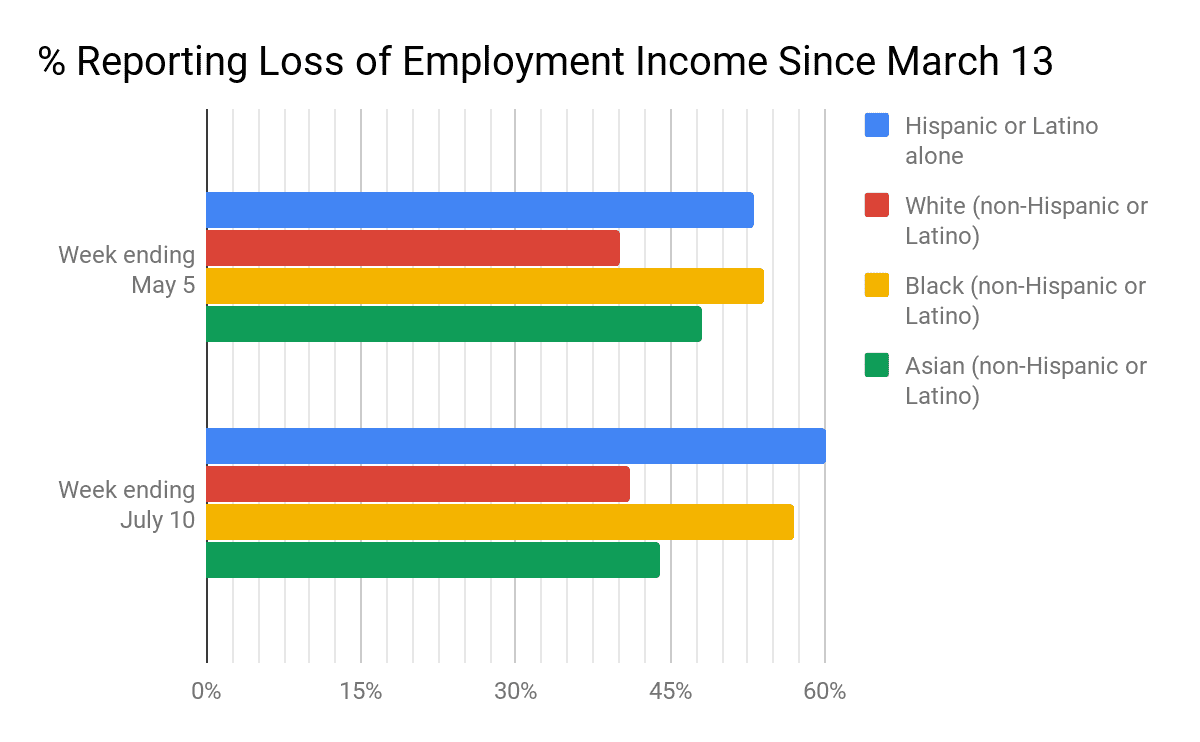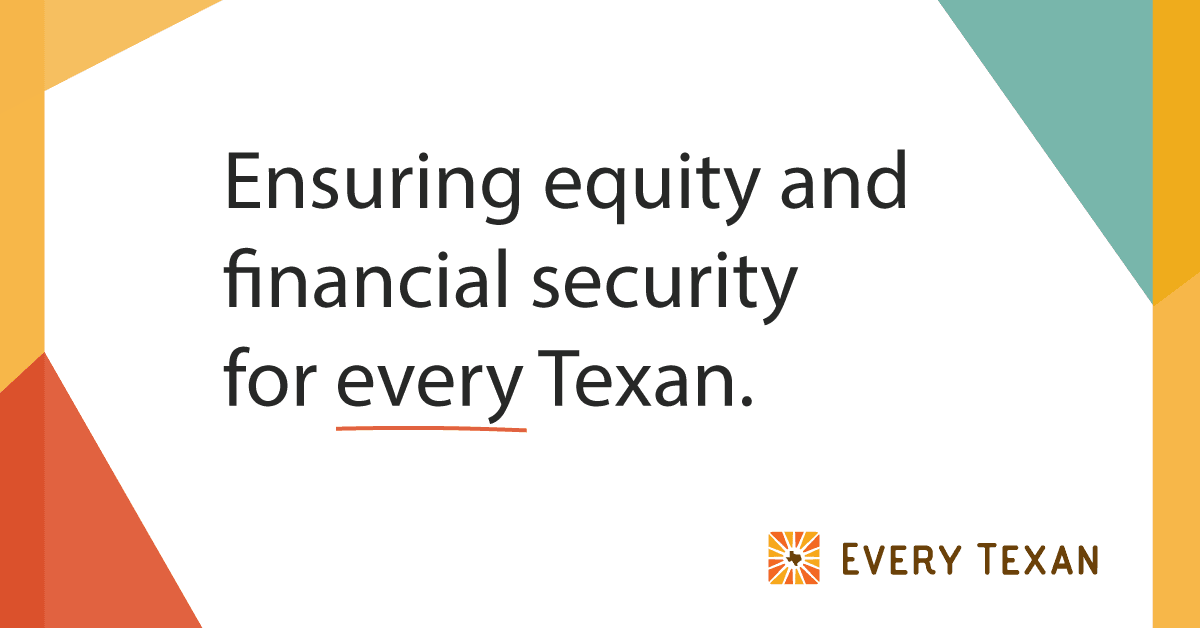In an effort to support policy responses to pandemic-related social and economic hardship, the U.S. Census Bureau is conducting a weekly survey to measure the impacts of COVID on American households. Preliminary results from ongoing data collection have revealed wide-spread losses in Texas, with the state’s most vulnerable populations — including households with children, non-college degree holders, and communities of color — disproportionately impacted.
The first week after the survey was implemented on April 23, nearly half of all respondents (47%) in Texas reported having suffered a loss of employment income since March 13, and 41% expected a loss of employment income within the next four weeks. Ten weeks after the survey was first implemented, the number of those having suffered a loss of employment income grew by almost 700,000 to 50%. Reflecting a history of discriminatory policies and a systematic exclusion from COVID relief, Hispanic and Black respondents experienced a loss of income at a greater rate (60% and 57%, respectively) than white (41%) and Asian (44%) respondents. This disparity contributes to the higher percentage of employment income loss in the Houston metropolitan area (56%), which has larger populations of color than the state overall.

Source: US Census Bureau Household Pulse Survey, April 23 – July 10, 2020
While many lost income, a large proportion of Texans lost employment altogether. At the time of the first week of the survey, 8.7 million Texans were not working. Only eight weeks later, this number grew to 10.1 million. While the greatest percentage of these respondents were retirees (27%), other reasons cited for not working were being laid off due to the pandemic (11%), caring for children not in school or daycare (7%), reduction in business due to the pandemic (including furlough) (11%), and concerns about getting or spreading the coronavirus (11%). Of all respondents who reported not working, nearly all — 83% — did not receive paid leave during their time away from work. Eight in 10 of those who did not receive paid leave were non-college degree holders. Researchers have found that access to paid sick days increases the likelihood that an employee will stay home from work when they are sick, which helps limit the spread of illness in the workplace to coworkers and customers.
As predicted by an earlier projection, a sharp growth in unemployment was accompanied by a loss of unemployment-based health insurance. Before the pandemic, Texas had the worst uninsured rate in the country, with nearly 18% lacking health insurance. By July 10, survey data revealed an uninsured number of over 1 in 5 for all respondents. Uninsurance rates varied widely among groups. Thirty-two percent of Hispanic respondents and 21% of Black respondents reported not having health insurance compared to 13% of white respondents and 11% of Asian respondents. Over a quarter of respondents in families with children under 18 reported not having insurance, compared to 15% of respondents without children.
For these Texans, losses in income and employment also trickled down to food and housing security — particularly in households with children. Eleven percent of all households reported having insufficient food access prior to the pandemic, compared to 14% of households with children. The first week after the survey began, the percentage of households with children that had insufficient access to food grew to 16%. Black families reported the highest rates of food insufficiency after the pandemic began – 28% – followed by Hispanic families (21%), White families (8%) and Asian families (1%). By July 10, 27% of families with children under 18 reported having no confidence in their ability to pay next month’s rent, compared to 21% overall of renters who responded. Only 4% of families who responded as renters had been given the option to defer their next month’s rent payment.
While these statistics and disparities are expected to continue to mount throughout the course of the pandemic, Every Texan recommends equitable public policy responses that can curtail their growth. The Texas Workforce Commission should work to reduce time to process unemployment and underemployment claims and expand eligibility. State lawmakers should urge policies that increase the amount of and accessibility to SNAP and EBT benefits to address food insecurity. To limit further loss of health insurance and employment income, the Texas Attorney General should withdraw lawsuits against the Affordable Care Act and against Austin and San Antonio local paid sick leave ordinances. Additionally, Medicaid and CHIP enrollment processes should be streamlined and made more accessible. Texas’ moratorium on evictions should be reinstated to avoid a wave of homelessness in cities such as Houston, which is now the largest city in the country where evictions can resume. In enacting policies such as these, the worst of the pandemic’s economic impact may not be yet to come for Texas’ most vulnerable populations.
A previous version of this blog stated that over an eight-week period, the number of Texans not working increased to 10.7 million, when the correct number is 10.1 million. The statistic has now been corrected.
